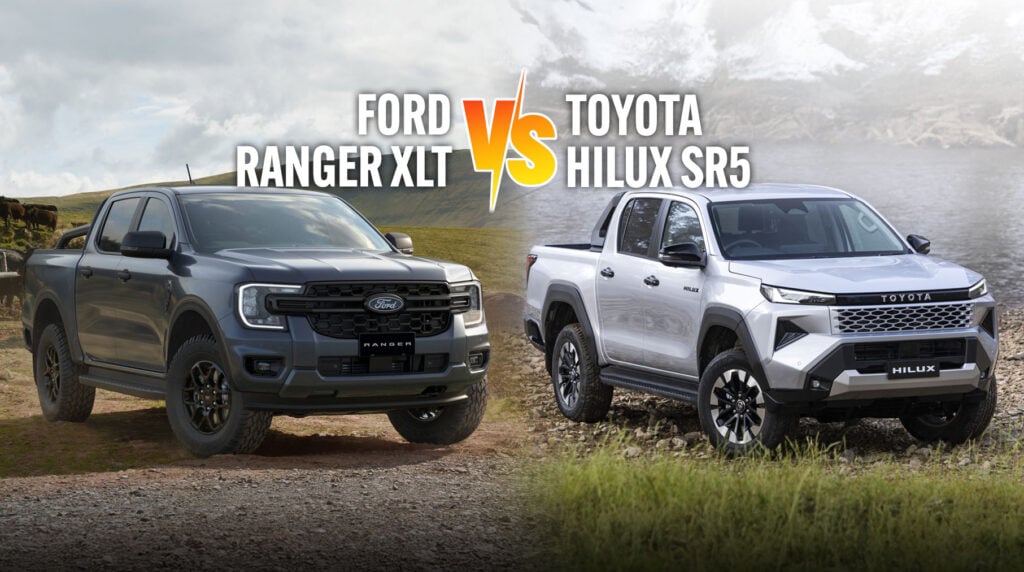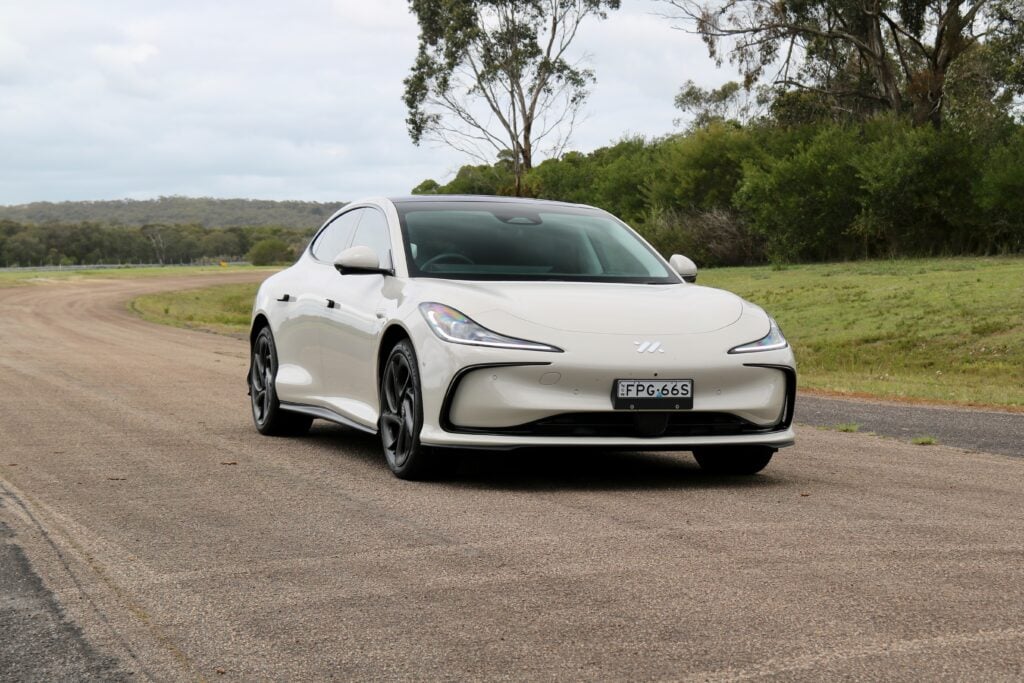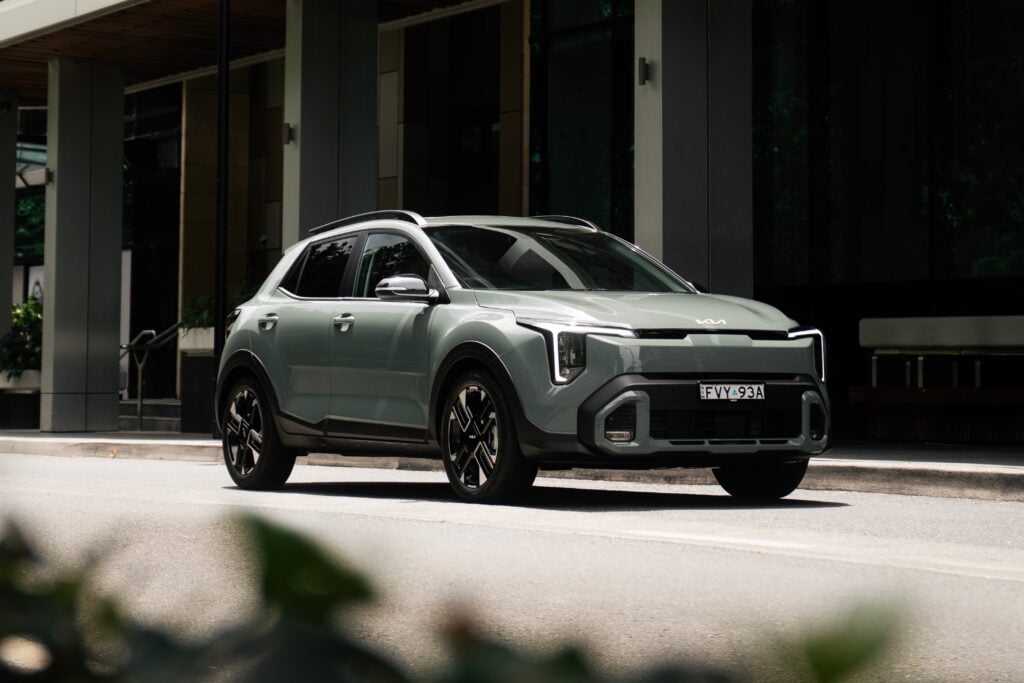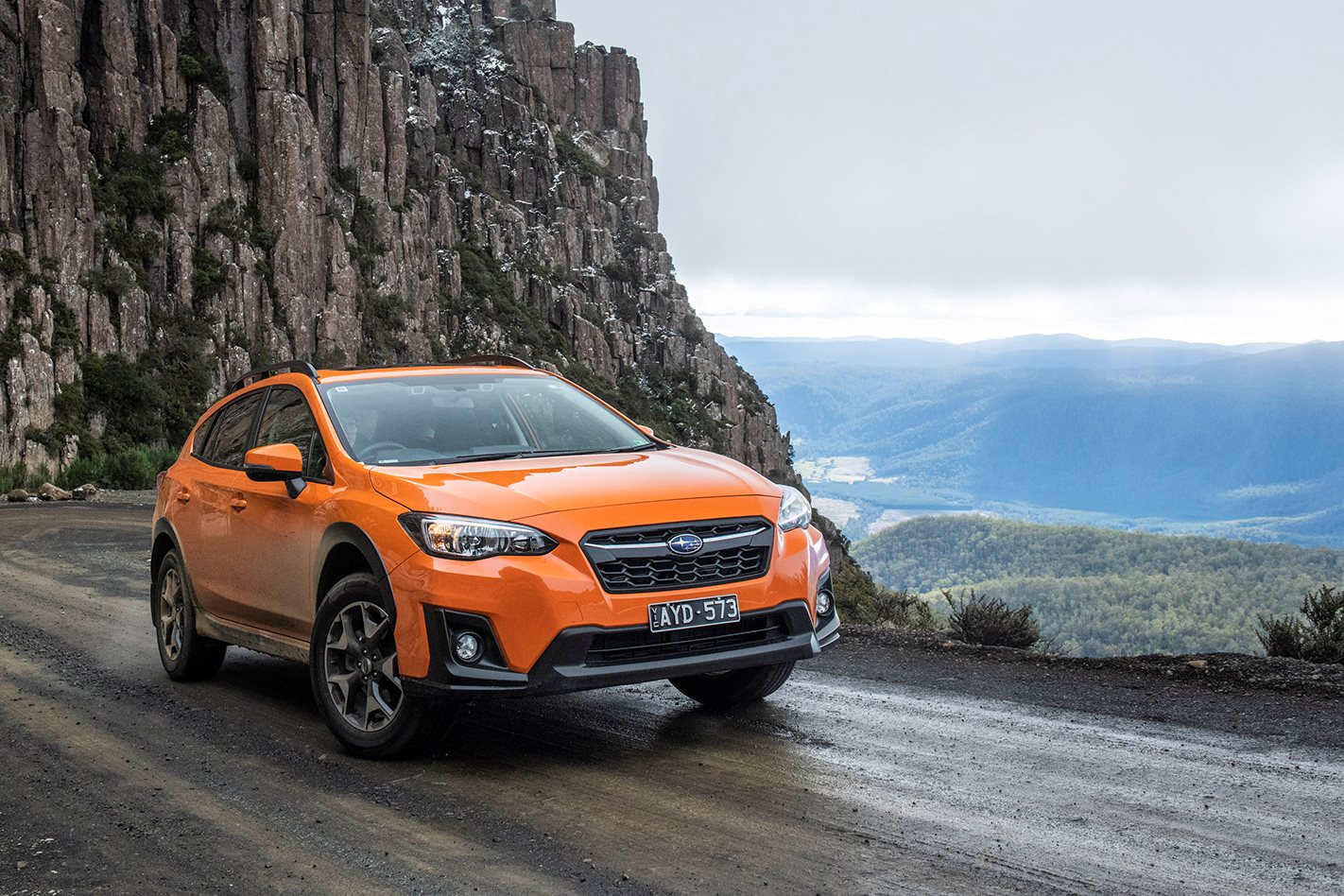
The second-generation Subaru XV has remained largely untouched since its 2017 launch, and since then it has been joined by an ever-growing list of crossover rivals. We decided to see how it’s held up in that highly competitive segment.
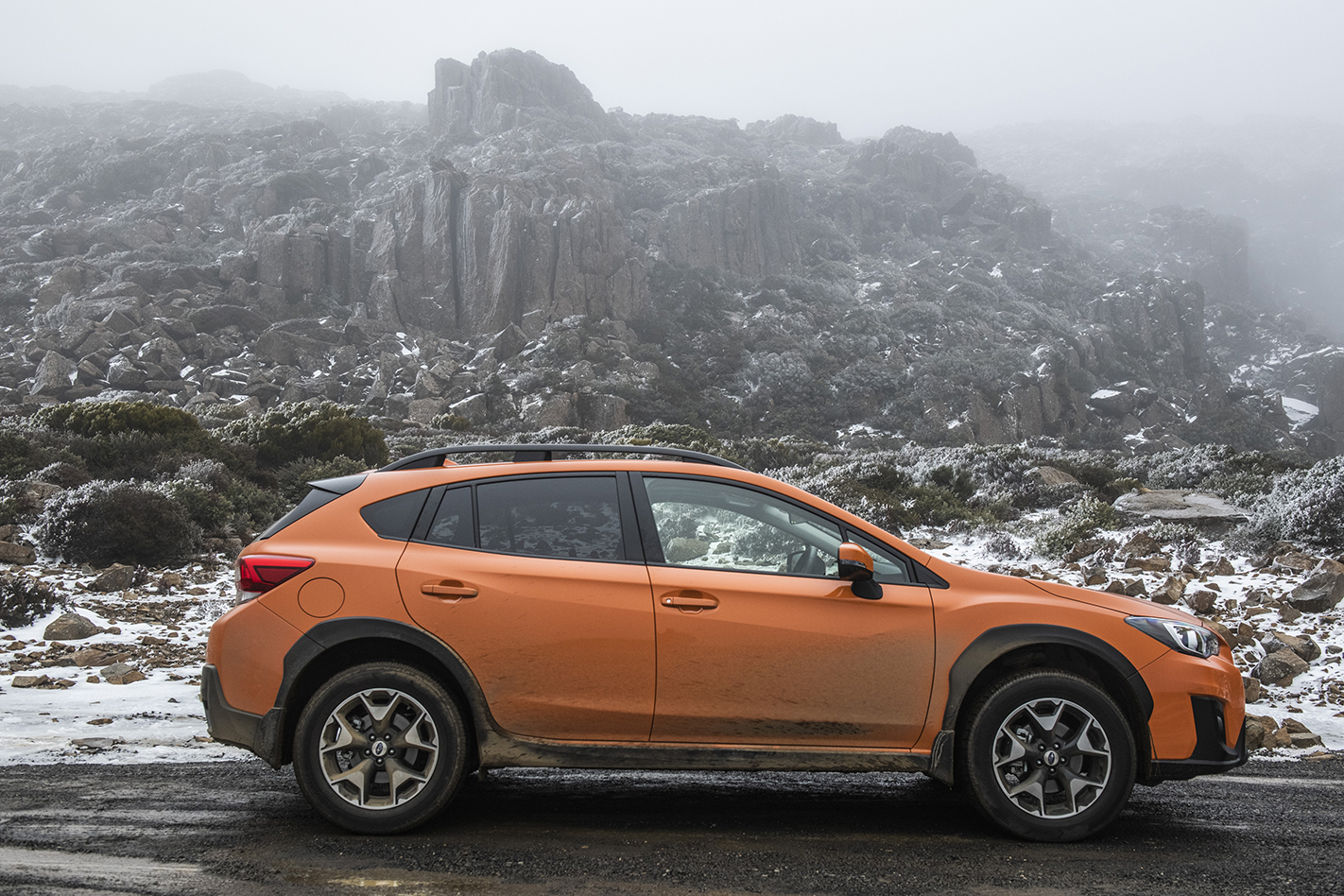
What is it?
The smallest car in Subaru’s popular SUV range is essentially a high-riding version of the Impreza hatchback, with its major point of difference being its ability to get you a bit further off the beaten track.
One of the better-equipped small SUVs, the all-wheel drive (AWD) XV features Subaru’s EyeSight suite of driver aids, which includes active cruise control and autonomous emergency braking. All versions are equipped with Subaru’s X-Mode AWD system that will help you negotiate steep and slippery terrain, while a 220mm ground clearance gives it the ability to step over obstacles that would otherwise ground a regular Impreza hatch.
All XVs are powered by a 2.0-litre four-cylinder petrol engine coupled with a continuously variable transmission (CVT).
How much is the Subaru XV 2.0i Premium?
The Subaru 2.0i Premium is third-up in the four-strong XV range that includes the entry-level 2.0i priced at $28,490. Retailing for $32,670, the 2.0i Premium bridges the gap between the 2.5i-L ($30,860) and the range-topping 2.5i-S ($35,780).
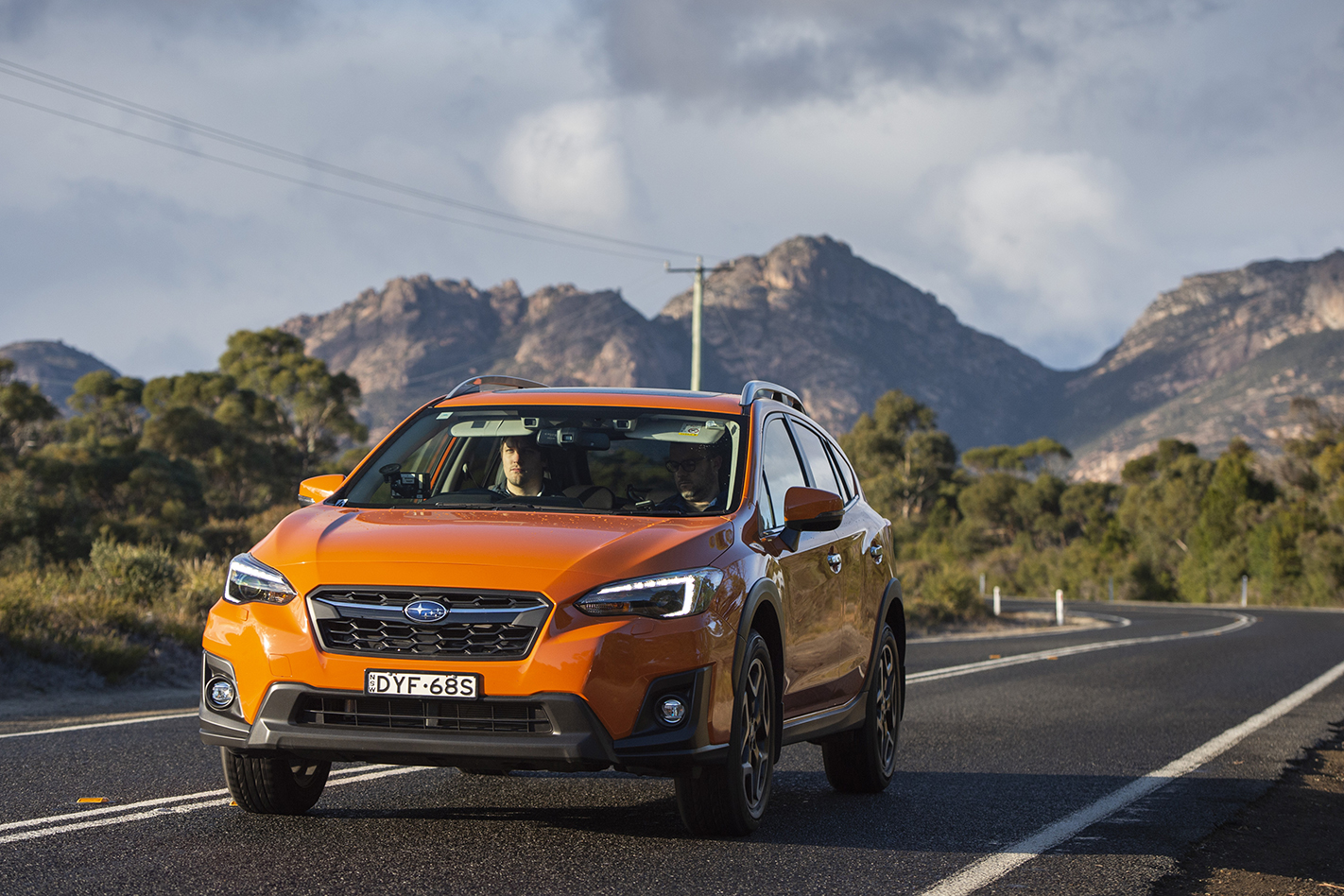
All versions except the 2.0i feature Subaru’s EyeSight camera-based active safety system, with the 2.0i-L and Premium sharing standard features including: Apple CarPlay/ Android Auto, 8.0-inch touchscreen, premium cloth seats, leather trimmed steering wheel and gear lever, dual-zone climate-control air conditioning, power folding exterior mirrors and 17-inch alloy wheels.
For the extra money, the 2.0i Premium gains satellite navigation and sunroof, while missing out on the 2.5i-S’s leather seat trim, LED headlights that shine into corners, auto-high beam, bigger 18-inch alloy wheels and additional active safety features including blind-spot monitoring, lane-changing assist, rear-cross traffic alert and reverse auto braking.
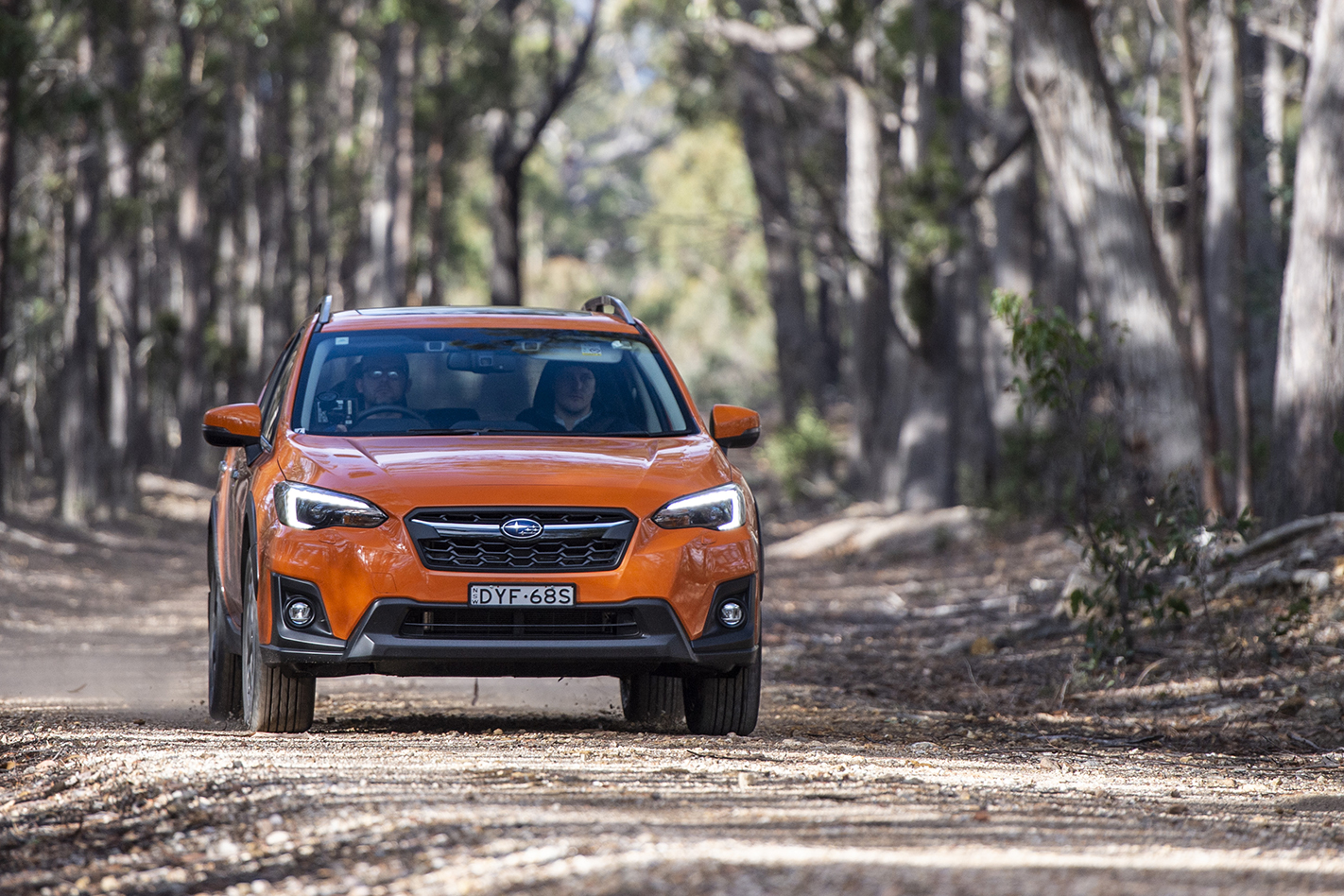
Our test car came adorned with the attractive Sunshine Orange paint, which like all the other shades doesn’t cost extra.
All XVs now come with a five-year unlimited kilometre warranty.
Is the Subaru XV 2.0i Premium easy to live with?
Yes. Like the Impreza on which it’s based it’s quite spacious for a small car (their interiors are almost identical). Two years on, the cabin design still looks sharp and has a quality feel to it with soft touch surfaces highlighted by attractive contrasting stitching that also adorns the seats.
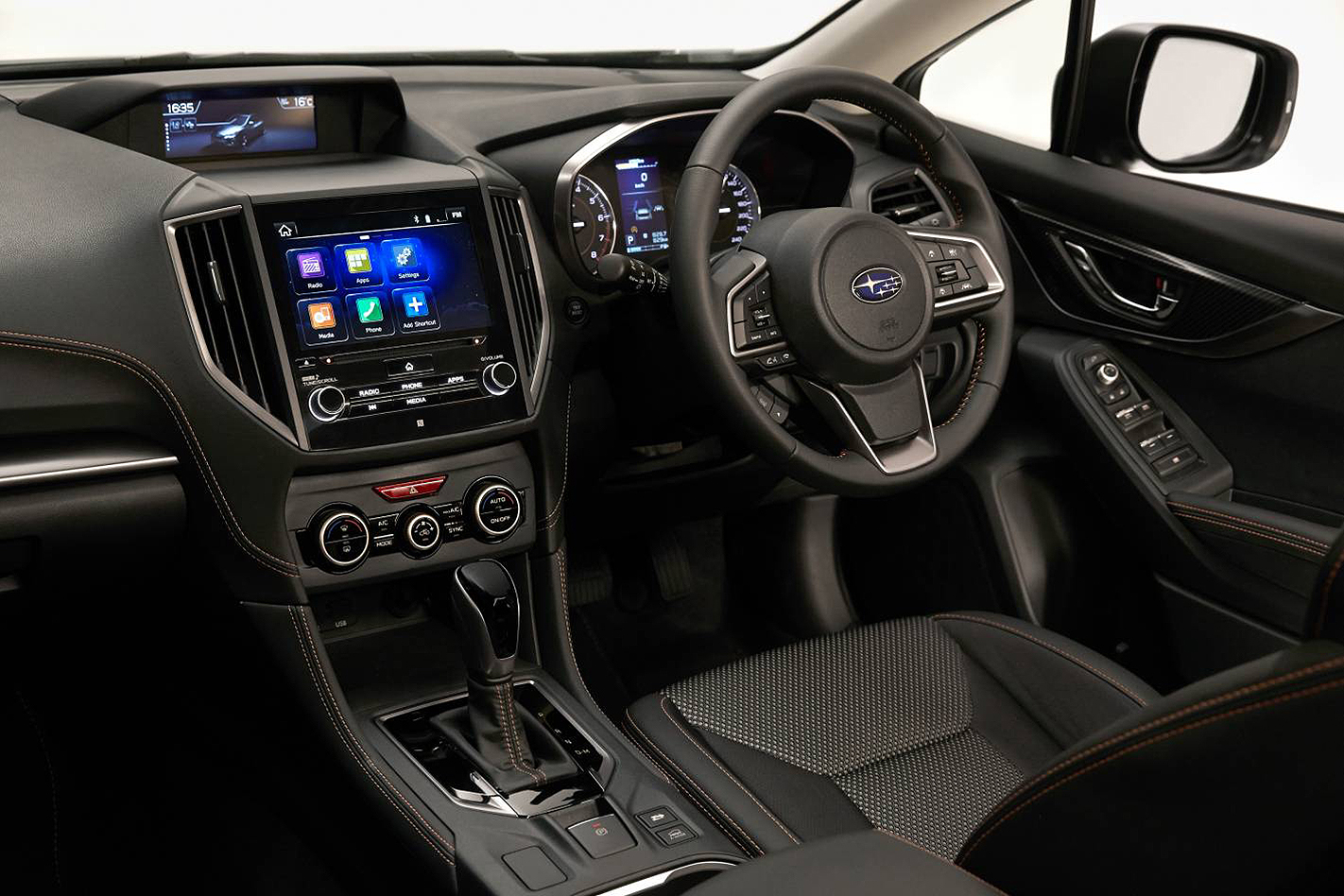
The 2.0i Premium’s stylish cloth seats have good back support and side bolstering and actually feel more comfortable than the leather-appointed seats in the pricier 2.0i-S. The rear seat easily accommodates two big adults and there is good side and front vision for rear occupants, along with face-level air vents.
At 310 litres, boot space is a little below the average for small SUV, and is less than the 345 litres available in the Impreza. On the other side of the coin, the reason the boot is smaller is because there’s a full-size steel spare wheel under the XV’s boot floor, rather than the Impreza’s space-saver. If you’re heading into the wilds, having a proper spare is definitely an advantage.
Need to carry more? The rear-seats have a 60:40 split to extend load space up to 765 litres, and if you need to tow anything the XV can lug a useful 1400kg on a braked trailer.
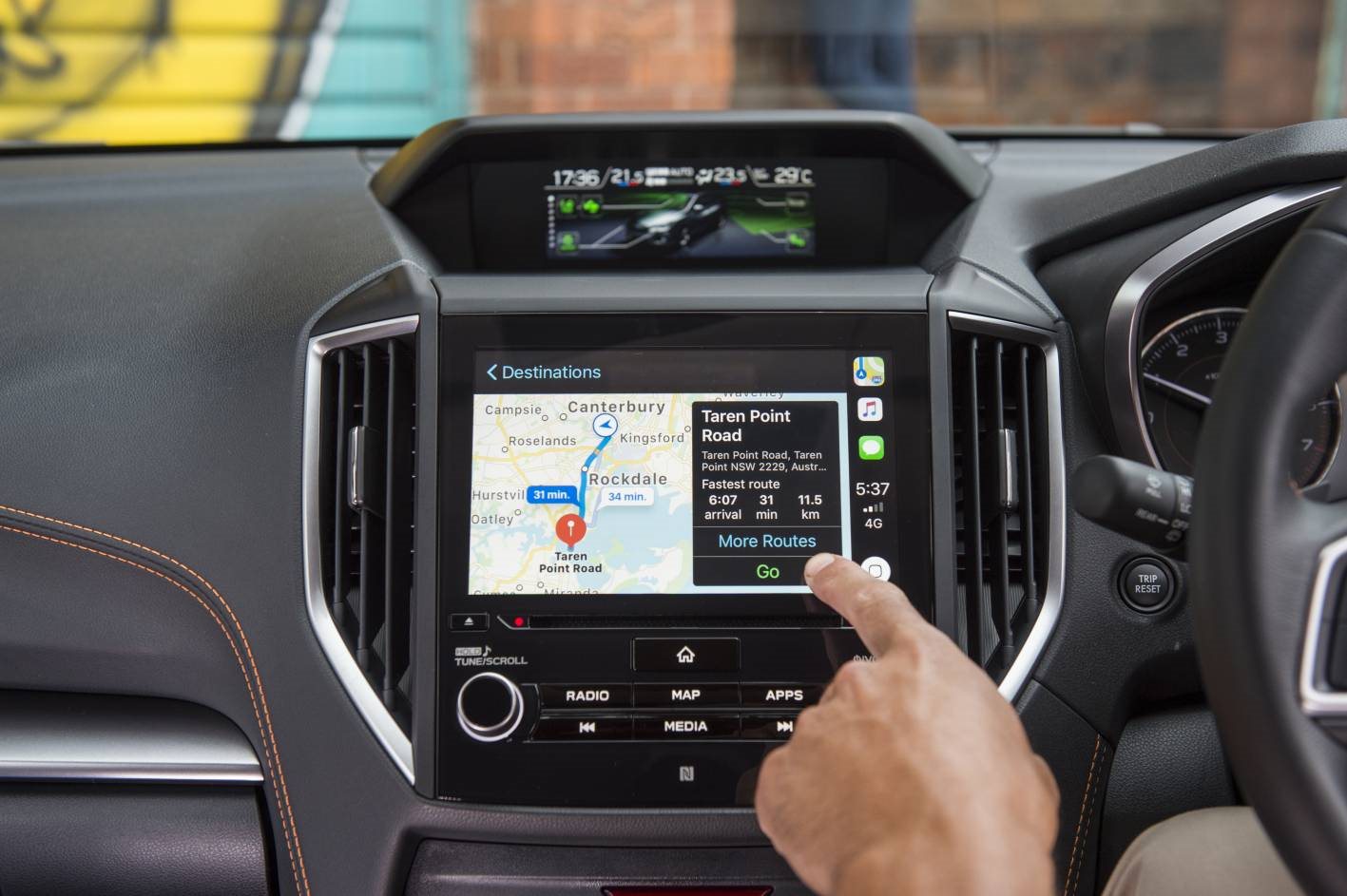
The XV 2.0i Premium comes with plenty of technology for the price, including the third generation of Subaru’s EyeSight that uses two cameras to identify other vehicles, pedestrians, and objects in front. Among its functions are forward collision warning, autonomous emergency braking, adaptive cruise control and lane-keeping assist.
EyeSight also has a handy feature that alerts you when the car in front has driven off, should you become distracted while waiting at an intersection.
Infotainment wise, the XV 2.0i Premium has a big bright 8.0-inch touchscreen with the convenience of Apple CarPlay and Android Auto smartphone mirroring and in-built satellite navigation.
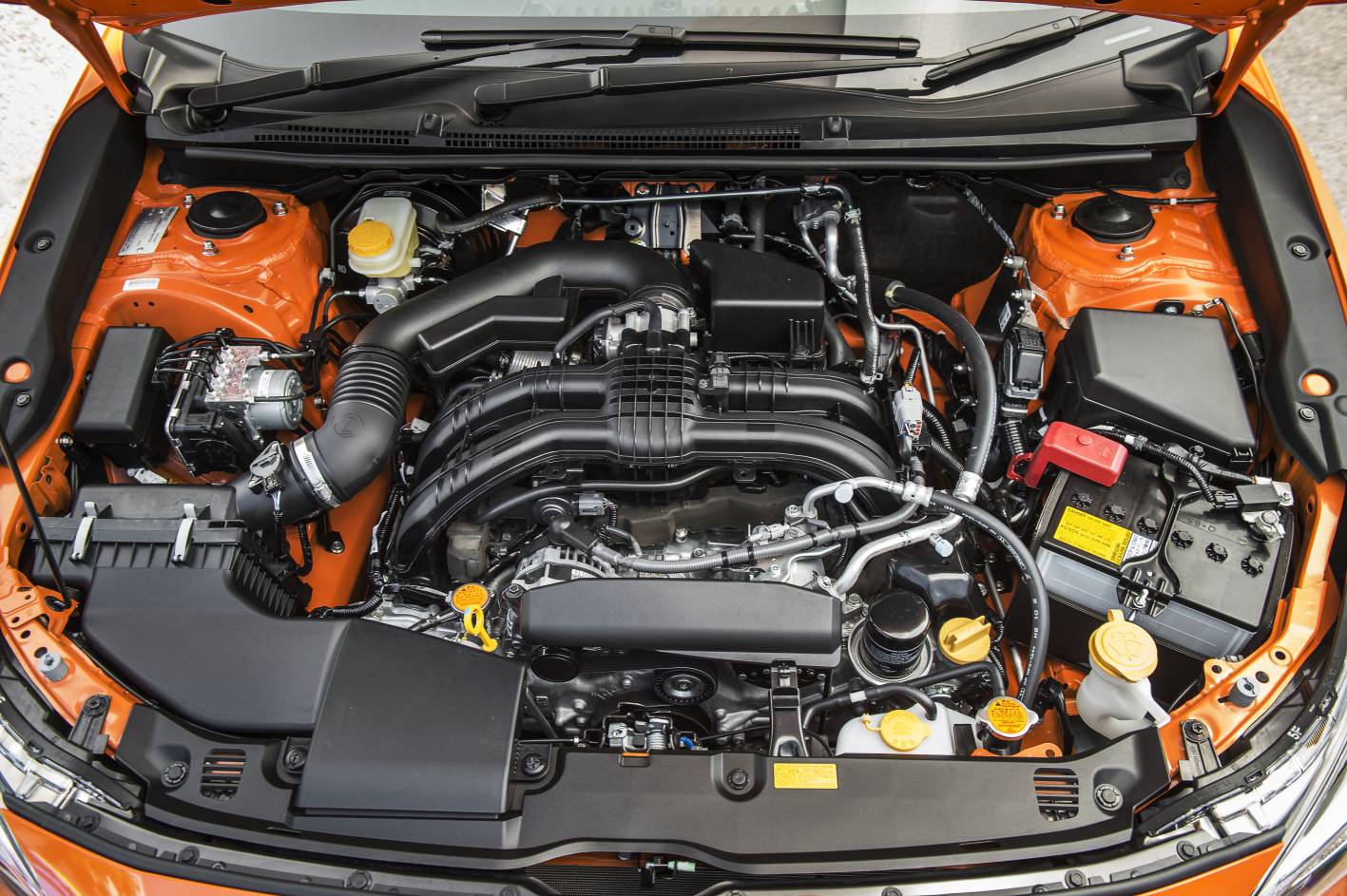
The 2.0-litre petrol four-cylinder/CVT powertrain consumes 91 octane unleaded at just 7.0 litres/100km on the official test (city and country combined), meaning its 63-litre tank gives you a range of 900km.
How well does the Subaru XV drive?
The XV weighs a little more than the Impreza, which means the 115kW/196Nm 2.0-litre engine they share has to work a little harder. You won’t really notice this in most situations, but things do get a little loud and sluggish when putting the foot down to overtake or join freeway traffic.
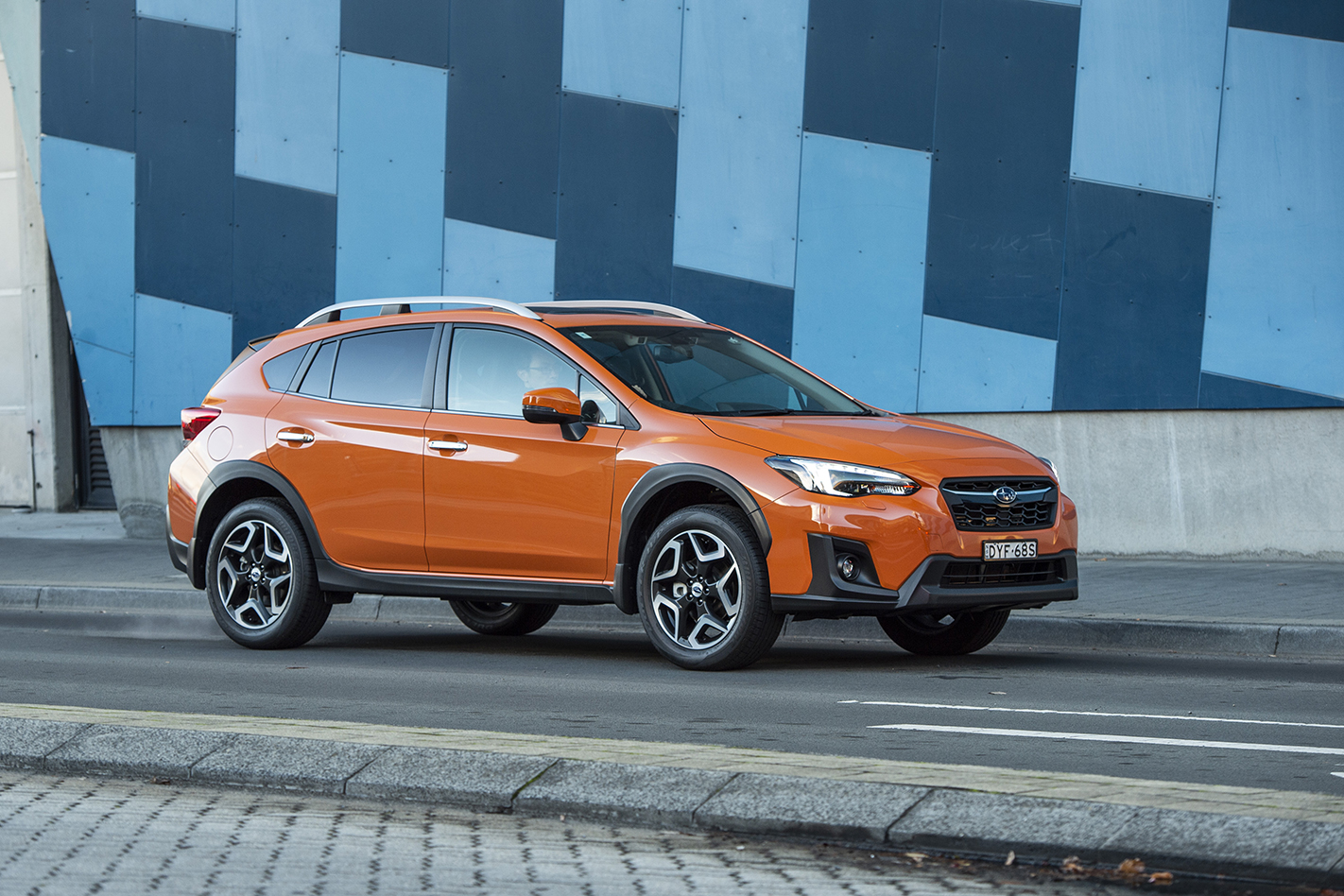
The XV handles as well as the Impreza despite the jacked-up ride height. The steering feels a little light but active torque vectoring and the flat-four engine’s low centre of gravity keeps the front end pointing where you want when driven with enthusiasm through bends. It may not look like it, but it’s a surprisingly agile chassis.
But while it’s a great city car, the XV is truly in its element on dirt and gravel tracks, with its all-wheel-drive system and sharply-tuned electronic stability control keeping things stable on loose surfaces.
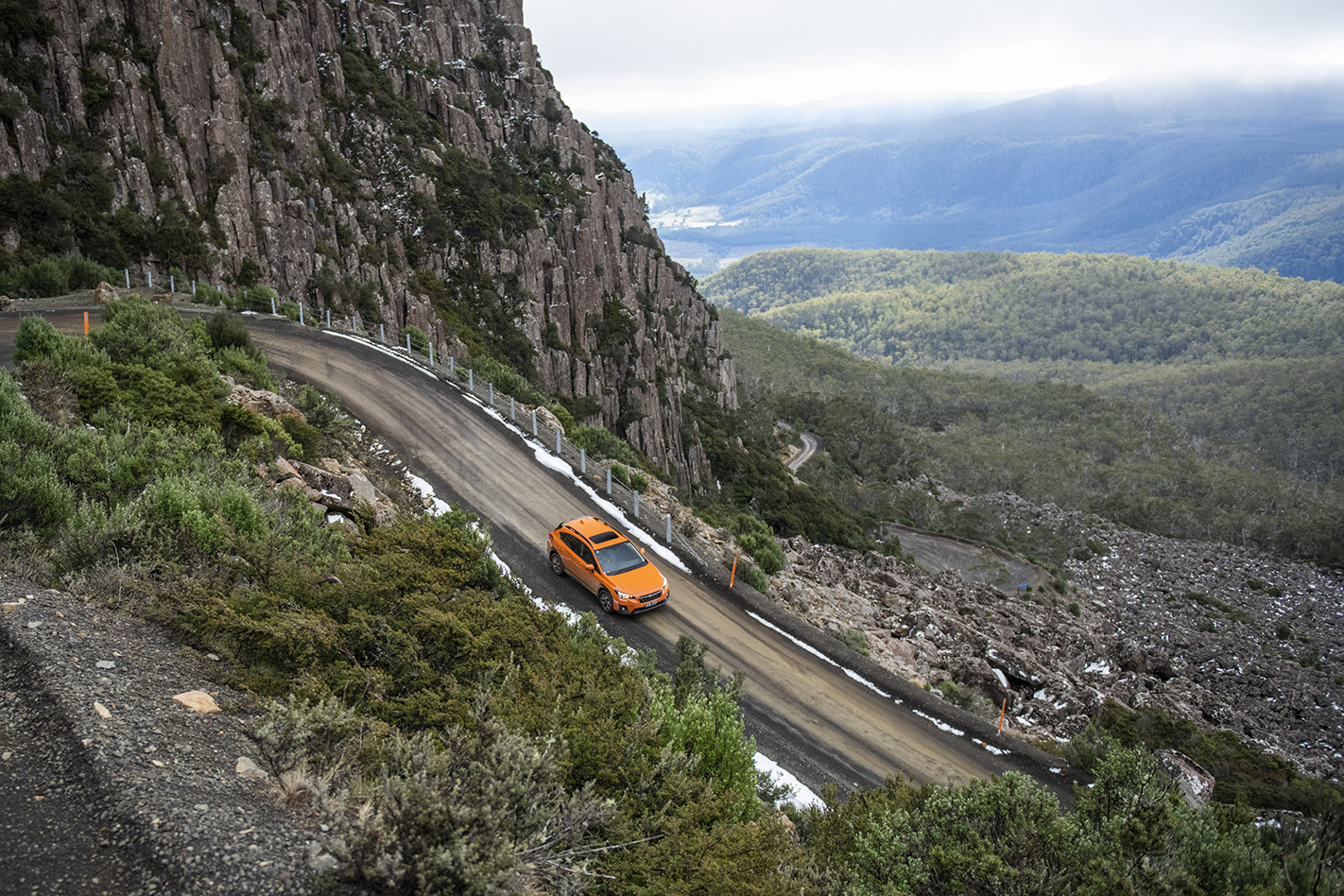
When things get particularly curly, the X-Mode’s hill-crawl function, which helps the XV climb slippery slopes, and has hill descent control that helps you back down without having to touch the brakes.
There are few crossovers that are as fun, comfortable and versatile.
The Verdict
As it nears the middle of its life cycle, the XV is still one of the better crossovers, with a ruggedly handsome high-riding hatch aesthetic that other brands haven’t quite managed to emulate. It’s almost alone in its ability to competently handle most road and weather conditions and is very well equipped.
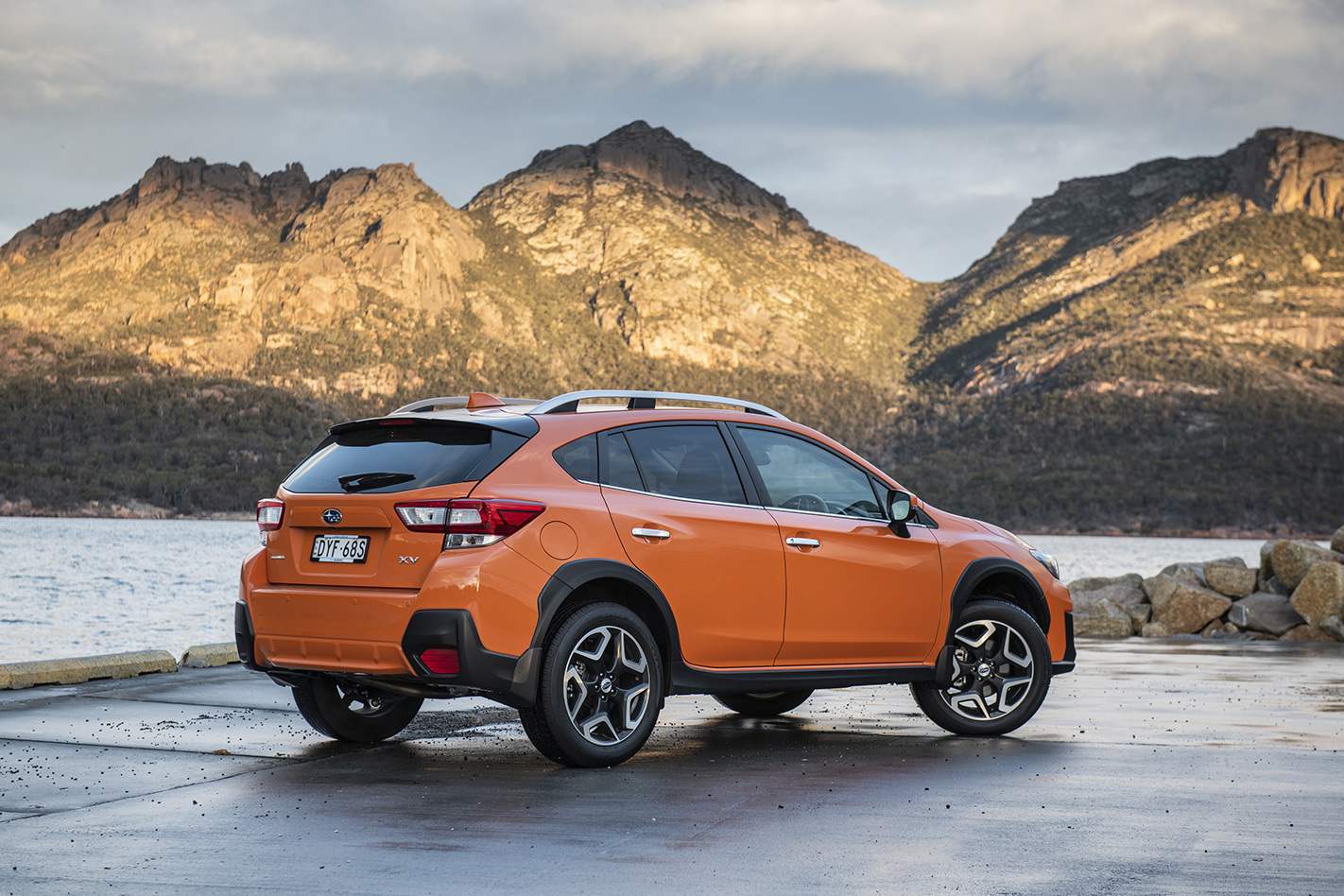
The real question isn’t whether you should buy a Subaru XV (if you like it go right ahead, you won’t be disappointed), but which variant to buy.
The 2.0i Premium offers good value for the price, but it’s not really the sweet spot of the XV range.
Having Apple CarPlay and Android Auto means you could probably live without the in-built sat-nav and sunroof, and opt for the cheaper 2.0i-L instead. The $1800 you save could be better spent on added safety in the form of front-rear-parking sensors, which cost the same amount.
Curiously, parking sensors appear to be optional across the entire XV range.
Alternatively, you could, spend about $3000 more on the 2.0i-S and get the full suite of active safety suite, handy rain-sensing windscreen wipers, and heated leather seats. It’s all a question of what suits your needs better, but the core experience of all XVs is at least common across them all – and that’s a good thing.


